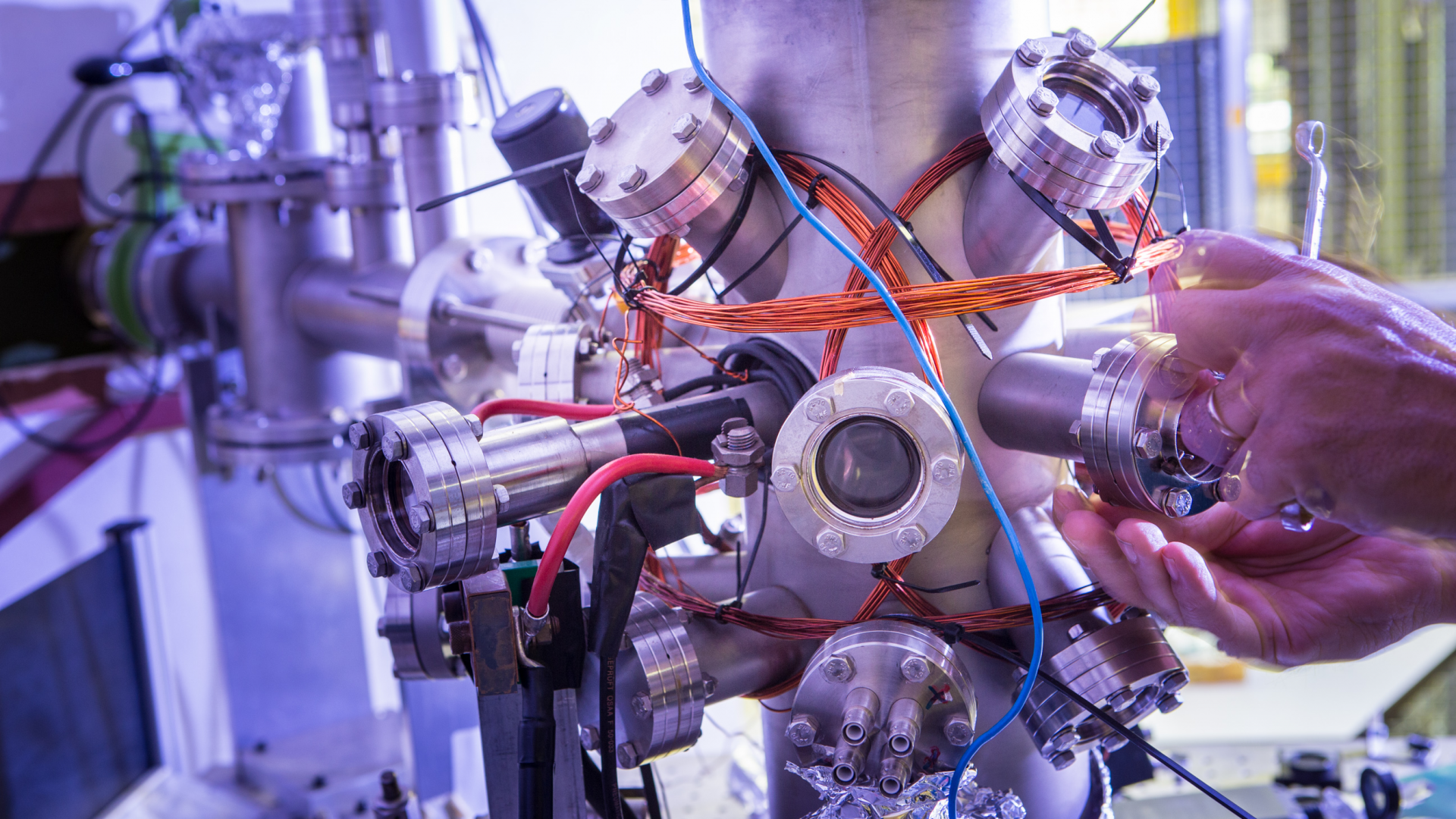PhD- student: Resolving Surface Reactions in Plasma Catalysis (SURPLAS)
Work Activities
Surface reactions on metal model catalysts in plasma environment
Activation of molecules in a plasma can form the basis for efficient chemical reactions making direct use of electrical energy. The interaction of plasma-activated species with a catalyst enhances the efficiency of these reactions. However, at present the active state of catalyst surfaces in plasma is unknown, limiting the impact of plasma catalysis by inhibiting the design of dedicated plasma catalysts. This PhD position links surface science and plasma catalysis, aiming to understand the active state of a surface live during plasma exposure. As a PhD student, you will use a unique approach combining surface-sensitive spectroscopy techniques with highly reactive plasma environment to resolve the critical steps of plasma-assisted reactions at surfaces. This PhD position is part of a fully funded Starting Grant from the European Research Council entitled “Resolving surface reactions in plasma catalysis: Towards rational catalyst design (SURPLAS)” at the Advanced Research Center for Nanolithography (ARCNL).
Project goal
In the SURPLAS project, we will determine the surface reaction mechanisms of catalysts in plasma and demonstrate the rational design of plasma catalysts for CO2 hydrogenation. As a PhD student, you will compare the interaction of catalytically active metals favoring different products and determine the details of reaction pathways at the surface. You will learn to prepare atomically clean surfaces in ultra-high vacuum and perform spectroscopy experiments to determine their active state live during exposure to plasma. Using photoelectron spectroscopy, you will analyze the surface composition and oxidation state of the active surface, allowing conclusions on the reaction mechanism. Infrared absorption spectroscopy will enable you to identify the key reaction intermediates of plasma-catalytic reactions.
Qualifications
You have a university degree in physics, physical chemistry, or a related field that satisfies the Dutch university requirement to enter into a PhD program.
Good verbal and written communication skills (in English) are required.
Prior experience with surface science, ultra-high vacuum, and spectroscopy techniques is considered an advantage for the project.
Work environment
The Advanced Research Center for Nanolithography (ARCNL) focuses on the fundamental physics and chemistry involved in current and future key technologies in nanolithography, primarily for the semiconductor industry. ARCNL is a public-private partnership between the Netherlands Organisation for Scientific Research (NWO), the University of Amsterdam (UvA), the Vrije Universiteit (VU) Amsterdam and the semiconductor equipment manufacturer ASML. ARCNL is located at the Science Park Amsterdam, The Netherlands (see also www.arcnl.nl).
The research activities of the Materials and Surface Science for EUV Lithography group aim at the atomic-scale understanding of surface processes in challenging environments, such as plasmas, high light intensities, and high temperatures.
Working conditions
The position is intended as full-time (40 hours / week, 12 months / year) appointment in the service of the Netherlands Foundation of Scientific Research Institutes (NWO-I) for the duration of four years, with a starting salary of gross
€ 2.781 per month and a range of employment benefits. After successful completion of the PhD research a PhD degree will be granted at a Dutch University. Several courses are offered, specially developed for PhD-students. A favorable tax agreement, the ‘30% ruling’, may apply to non-Dutch applicants. ARCNL assists any new foreign PhD-student with housing and visa applications and compensates their transport costs and furnishing expenses.
More information?
Dr. Roland Bliem
Head of the Materials and Surface Science for EUV Lithography group
E-mail: r.bliem@arcnl.nl
Phone: +31- 20 851 7100
Application
You can respond to this vacancy online on the ARCNL webpage.
Please send your:
– Resume;
– Motivation why you want to perform the outlined research (max. 1 page).
It is important to us to know why you want to join our team and why you are interested in this project. This means that we will only consider your application if it includes your motivation letter.
Online screening may be part of the selection.
Commercial activities in response to this ad are not appreciated.
Diversity code
ARCNL is highly committed to an inclusive and diverse work environment: we want to develop talent and creativity by bringing together people from different backgrounds and cultures. We recruit and select on the basis of competencies and talents. We strongly encourage anyone with the right qualifications to apply for the vacancy, regardless of age, gender, origin, sexual orientation or physical ability.
Commercial activities in response to this ad are not appreciated.








